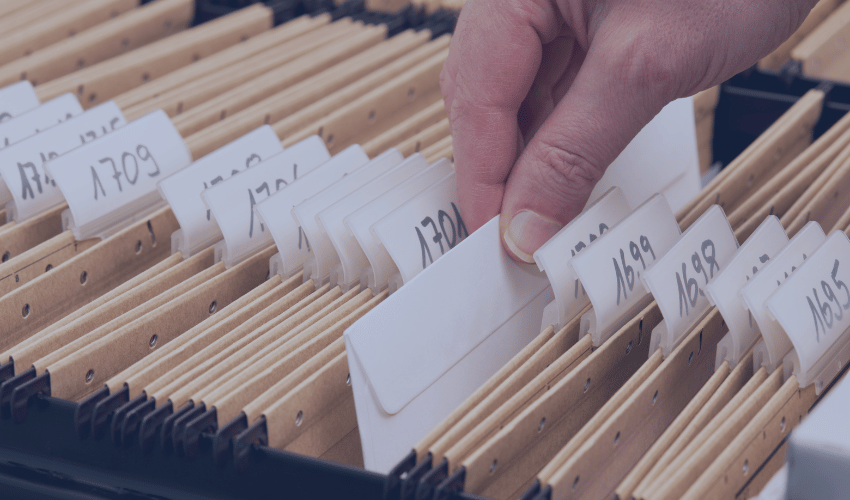Legal Transcripts: An Essential Guide
Legal transcripts are a vital tool in the legal profession. They capture a complete record of spoken words in courtrooms and law offices, transcribing everything said during depositions, testimonies, hearings, or trials. These records are a precise and verbatim representation of what was said, whether it was spoken live or recorded. In short, legal transcripts provide an accurate and detailed account of all oral arguments.
Legal transcripts are meticulously crafted documents that serve as tangible evidence in court trials and hearings. They are created by court reporters who pour over every detail, perfecting grammar and refining punctuation marks. These transcripts form an intrinsic part of formal litigation records by translating real-time dialogue into text narrative.
More than just documents, legal transcripts are essential for lawyers to plot strategic moves and dissect complex cases. Their integrity ensures the authenticity of trial recollections, which far outweighs the accuracy of human memory. Understanding the different types of legal transcripts makes navigating the convoluted corridors of bureaucracy inherent within our justice system easier.
If you've ever struggled to understand the value of legal transcripts, this article will provide you with just that—a comprehensive guide that will equip you with the knowledge and tools you need to understand legal transcription services confidently. So, don't hesitate—read on to learn more!
Legal Transcripts for Different Audiences
Legal transcripts play a crucial role in our justice system. They serve as precise, official records of proceedings and ensure that every word spoken - from whispers between attorney and client to cross-examinations in courtrooms - is accurately documented. These documents have significant value for various audience groups, such as attorneys, legal staff, court reporters, the public, and other stakeholders.
Transcripts for Attorneys and Legal Staff
For attorneys and their legal teams, transcripts are intrinsic tools in building and defending cases. Primarily, they provide:
A written record of depositions which can be referred to multiple times.
Evidence uncovered during trial testimonies.
Accurate recall of exchanges during negotiations.
Transcripts enable attorneys to prepare more effectively for trials or hearings by providing exact quotes to use in their arguments or pinpointing inconsistencies in previous statements made by witnesses or the opposing party.
Furthermore, trial transcripts offer valuable insights into the judge's reasoning behind rulings to clients affected by these decisions and their acting lawyers. This understanding assists parties in planning future strategies.
Transcripts for the Public & Other Stakeholders
Opening windows into courtroom proceedings transparently, legal transcripts align public perception with legitimate judicial activities. The following are the key advantages they offer:
Unraveling the legalese: By decoding complex legal terminologies and procedures, transcripts empower ordinary citizens to understand proceedings' details better.
Providing access when proceedings cannot be attended: Transcripts help inform individuals who can't physically attend trials due to constraints or non-open courts.
Facilitating news reporting: Reporters often use transcripts as primary sources of information for their stories, promoting accurate dissemination of courtroom happenings.
Legal transcripts are crucial documents that provide accurate interpretations of legal cases. They benefit potential jurors, law students, scholars, and researchers. Crafting these transcripts is highly critical, as attorneys and curious members of society depend on them. Legal transcripts make justice more accessible and approachable for everyone.
Understanding the Variety of Transcript Formats
Navigating the realm of legal transcripts involves understanding various formats, each with unique characteristics and advantages. The predominant ones are RealLegal E-transcripts, PDF and ASCII transcripts, and traditional paper-based transcripts.
RealLegal E-Transcripts: The Digital Evolution
RealLegal E-transcripts have become a popular transcription service choice. As a revolutionary innovation in the transcript world, these electronic transcripts enhance searching capabilities and hyperlinked exhibits. Their locked format also ensures that character spacing remains intact, whether viewed or printed, significantly enhancing readability. They target accessibility - you can instantly access them through email, cloud storage, or download them directly onto your device.
PDF and ASCII Transcripts: Accessibility and Compatibility
Aside from specific software-oriented solutions like RealLegal E-transcript format, legal professionals also utilize widely recognized text file types such as PDF and ASCII. These formats prioritize compatibility with multiple devices while maintaining a uniform layout across platforms.
A distinct advantage to using ASCII is its minimal size; it fits perfectly for simple text-based data without involving any high-end design complexity, which might not be necessary for textual transcripts. On the other hand, PDFs provide additional benefits by allowing for features like images and secure document locking.
Traditional Paper Transcripts: Are They Still Relevant?
Despite advancing technology and shifting preferences toward digitization, traditional paper-based legal transcript formats are still significant for many transcribers and law firms. The tactile feel of paper documents may provide added comfort for some professionals who prefer annotating physically on their materials.
However, a quick assessment will reveal limitations, such as the physical space consumed for storing these documents and diminished capacity for efficient searching compared to their digital counterparts.
Before choosing, one should thoroughly understand each transcript format, as personal preferences and case-specific requirements vary.
The Advantages of Electronic Transcripts
In the fast-paced world of law, transcripts are crucial as written records of spoken words during legal proceedings. These could take the form of court hearings, depositions, or testimonies. Traditional methods have entailed transcribing manually onto paper, which is then disseminated manually - often leading to time delays and potential risks in maintaining confidentiality. Modern advancements like electronic transcripts have emerged to improve speed, efficiency, and data security.
Speed and Efficiency in Electronic Delivery
Unlike traditional transcription methods involving printouts that need circulating via mail or person-to-person handovers, electronic delivery systems offer additional benefits such as quick file sharing via email or secure cloud storage platforms. This reduces physical handling and allows instant delivery, saving valuable time and resources.
Additionally, electronic transcripts eliminate waiting periods typically associated with the production and distribution of their conventional print counterparts. For example, receiving printed transcripts from court reporting agencies can take days, if not weeks, whereas e-transcripts are available right after the recording process is completed.
One notable feature is the utilization of compression technology. As the U.S. District Court reported, "Compression technology enables court reporters and transcribers to offer compressed transcripts on a per-page basis." This effectively streamlines information into manageable parts, further driving up productivity levels.
Security Features and Confidentiality Concerns
When dealing with sensitive legal matters, ensuring privacy is paramount. Due to their tangible nature, paper documents carry a greater risk of damage or misplacement. Unfortunately, they also pose severe liabilities for accidentally or intentionally leaking confidential information. Legal professionals require secure solutions throughout all stages, from transcription to document storage, to ensure peace of mind.
Here, electronic transcripts earn their stripes by employing cutting-edge technologies in secure digital storage and file encryption. By using unique user identifiers - typically involving advanced user credentials or biometric data - access becomes restricted to authorized personnel only, ensuring the safety of confidential information. Furthermore, data backup is more straightforward and cost-effective, offering additional protection against accidental loss or damage.
In conclusion, thanks to upgraded delivery efficiency and strict security measures, electronic transcripts have transformed the realm of legal reporting. They are genuinely embodying technological advancements at their finest!
Condensed Transcripts for Quick Reference
The days of dealing with dense and bulky transcripts that slowed down legal professionals are long gone. Legal practitioners increasingly use condensed transcripts in today's fast-paced industry, where time, precision, and efficiency are crucial. But what is a condensed transcript exactly? Let's take a closer look.
The Essentials of Condensed Transcripts
A condensed transcript boils down an extensive document into one that typically fits four pages into one, significantly reducing its physical length without losing essential information. It offers several benefits from an operational perspective:
Space Saving: Maintains an organized workspace with fewer physical documents.
Cost-Efficient: Reduction in printing costs due to fewer pages.
Time-Efficient: Initially, going through countless pages can be daunting; these provide a quick reference guide.
However, navigating these reduced page numbers could still be challenging with complex cases. The shift towards digitization has provided a solution to this problem: using word indices.
Navigating with Word Indices: A Time-Saving Tool
Word indices simplify navigation through digital transcripts by indexing every occurrence of each word used in the document, neutralizing any keyword search troubles you might face while dealing with hefty volumes of text.
Consider remembering relevant details or finding critical pieces of information - it gets easier when you know 'what' you are searching for but don't quite know 'where.'
At the end of a legal transcript, word indices can greatly assist legal professionals in their case analysis or preparation for litigation. With electronic formats, words are no longer buried in paper stacks but presented as interactive hyperlinks leading directly to their respective mentions within the document. This transforms laborious manual processes into effortless pointing and clicking exercises.
So, condensed transcripts work hand-in-hand with neatly curated word indices to make the journey smoother through the captivating yet rigorous realm of law. When faced with seemingly insurmountable transcript data, consider using intelligent solutions that are available to help.
Specialized Transcript Services for Legal Professionals
The realm of law places high stakes on accuracy, timeliness, and organization. Court transcription services become vital by meeting these expectations in and out of the courtroom. However, not all transcript needs are alike. Some situations require specialized services that adequately cater to specific requirements. This is especially true when time is limited or an initial framework is necessary.
Expedited Transcript Services: Meeting Tight Deadlines
Fast court transcription services are incredibly useful when working in a legal setting with tight deadlines and unpredictable changes. Expedited services aim to reduce the time frame for delivery compared to standard services, which can take several days or weeks, depending on the length and complexity of the transcription.
Providers offering such services invest in certified transcription services personnel explicitly trained for time-bound assignments. They leverage their swift typing skills and eye for detail to produce high-quality transcripts quickly, accepting nothing but excellence even within strict timelines.
Consequently, choosing a court-reporting transcription service with a proven record of expedited service delivery is essential. Providers must offer secure platforms for delivering expeditions while adhering to stringent deadlines, ensuring confidentiality is not compromised.
Rough Draft Transcripts: A Preliminary Overview
In some situations, having a perfectly formatted transcript may not be essential. For instance, if you're working on gathering depositions or planning strategically, spending too much time on creating a flawless transcript might slow down your progress. Therefore, it is important to have a rough draft of the transcript to help you move forward.
Rough drafts provide a concise overview of proceedings without neat formatting or meticulous proofreading typical in finalized versions – think of them as 'raw material.' This doesn't mean they're lax on crucial details; accuracy remains key despite being less polished.
Additionally, creating rough drafts can be very helpful for attorneys and legal staff as it provides them with early access to testimonies. This helps them to quickly digest information and make informed decisions at critical moments. It also reduces the waiting period between proceedings and the first access to materials, giving them an edge even before receiving the final transcript.
However, it's vital to remember that rough drafts shouldn't replace certified legal transcription entirely. They serve as preliminary outlines rather than official records - suitable for immediate reference but not for submitting as formal court documents.
Whether opting for expedited services or settling with rough draft transcripts, specialized court transcription services support you in meeting your unique requirements while keeping pace with complex legal environments.
Comprehensive Services Surrounding Legal Transcripts
Legal transcription services go beyond creating written documents from audio or video content, especially in the legal industry.
Real-Time Transcription Services
Real-time transcription is a practical and helpful tool for legal professionals. This service accurately transcribes spoken words into written form in real-time, making it ideal for time-sensitive situations like live trials or negotiations. With this tool, legal professionals can keep an accurate record of conversations and speeches without worrying about missing important details. It's a reliable solution that saves time and stress, making it an invaluable resource for legal industry professionals.
If you struggle to listen attentively and take down essential points during sessions, consider contacting a provider offering real-time legal transcription services. This service can save you time while providing accurate records on the spot.
Archiving and Retrieval Services
Lawyers deal with a lot of paperwork on a daily basis, including court transcripts. It's important to keep these documents organized and easily retrievable for future reference. Fortunately, many legal transcription service providers offer digital storage solutions alongside their standard services. This modern record-keeping method allows for safe and organized storage of critical documents, and advanced search tools make retrieval quick and easy.
If you're looking for a service provider to manage your legal documentation, look for this additional feature. It can help streamline document management and organization, which is essential for busy legal professionals. Choose your transcription service provider wisely—your caseload depends on it!
Choosing the Right Legal Transcript Service
Navigating the complexities of legal transcripts can be challenging, especially when choosing an ideal service provider.
Criteria for Selecting a Transcript Provider
The task of selecting a certified transcription service shouldn't be taken lightly. Here are some essential factors you should consider:
Accuracy: Transcripts must be error-free when dealing with legal matters. Ensure your potential provider has consistently high accuracy rates.
Turnaround Time: The speed at which the completed transcripts are returned is crucial, particularly in time-sensitive situations.
Pricing: A good-quality service does not have to break the bank; always compare prices before choosing a provider.
Confidentiality: Legal transcripts often contain sensitive information; hence, choose a provider that safeguards client data effectively.
Conclusion: The Future of Legal Transcripts
Legal transcripts are rapidly evolving with the increasing use of digital technology. Digital formats like RealLegal E-Transcripts and easily accessible PDFs are in high demand due to their speed and efficiency. Security measures are being strengthened to address confidentiality concerns. Busy professionals prefer condensed transcripts coupled with word indices. Specialized transcript services catering to industry professionals' distinct needs are becoming more common.
Providers offering real-time transcription services and archival and retrieval functionality are gaining popularity. Legal transcription will continue to persist as a vital resource guiding decisions across the legal framework.







